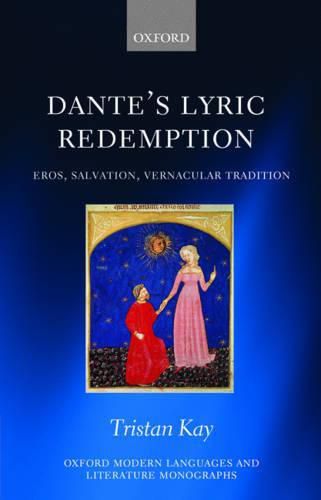Readings Newsletter
Become a Readings Member to make your shopping experience even easier.
Sign in or sign up for free!
You’re not far away from qualifying for FREE standard shipping within Australia
You’ve qualified for FREE standard shipping within Australia
The cart is loading…






Dante’s Lyric Redemption offers a re-examination of two strongly interrelated aspects of the poet’s work: the role and value he ascribes to earthly love and his relationship to the Romance lyric tradition of his time. It argues that an account of Dante’s poetic journey that posits a stark division between earthly and divine love, and between the secular lyric poet and the Christian auctor, does little justice to his highly distinctive and often polemical handling of these categories. The book firstly contextualizes, traces, and accounts for Dante’s intriguing commitment to love poetry, from the ‘minor works’ to the Commedia. It highlights his attempts, especially in his masterpiece, to overcome normative oppositions in formulating a uniquely redemptive vernacular poetics, one oriented towards the eternal while rooted in his affective, and indeed erotic, past. It then examines how this matter is at stake in Dante’s treatment of three important lyric predecessors: Guittone d'Arezzo, Arnaut Daniel, and Folco of Marseilles. Through a detailed reading of Dante’s engagement with these poets, the book illuminates his careful departure from a dualistic model of love and conversion and shows his erotic commitment to be at the heart of his claims to pre-eminence as a vernacular author.
$9.00 standard shipping within Australia
FREE standard shipping within Australia for orders over $100.00
Express & International shipping calculated at checkout
Dante’s Lyric Redemption offers a re-examination of two strongly interrelated aspects of the poet’s work: the role and value he ascribes to earthly love and his relationship to the Romance lyric tradition of his time. It argues that an account of Dante’s poetic journey that posits a stark division between earthly and divine love, and between the secular lyric poet and the Christian auctor, does little justice to his highly distinctive and often polemical handling of these categories. The book firstly contextualizes, traces, and accounts for Dante’s intriguing commitment to love poetry, from the ‘minor works’ to the Commedia. It highlights his attempts, especially in his masterpiece, to overcome normative oppositions in formulating a uniquely redemptive vernacular poetics, one oriented towards the eternal while rooted in his affective, and indeed erotic, past. It then examines how this matter is at stake in Dante’s treatment of three important lyric predecessors: Guittone d'Arezzo, Arnaut Daniel, and Folco of Marseilles. Through a detailed reading of Dante’s engagement with these poets, the book illuminates his careful departure from a dualistic model of love and conversion and shows his erotic commitment to be at the heart of his claims to pre-eminence as a vernacular author.